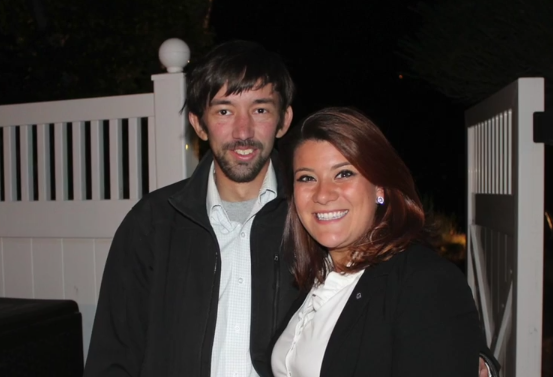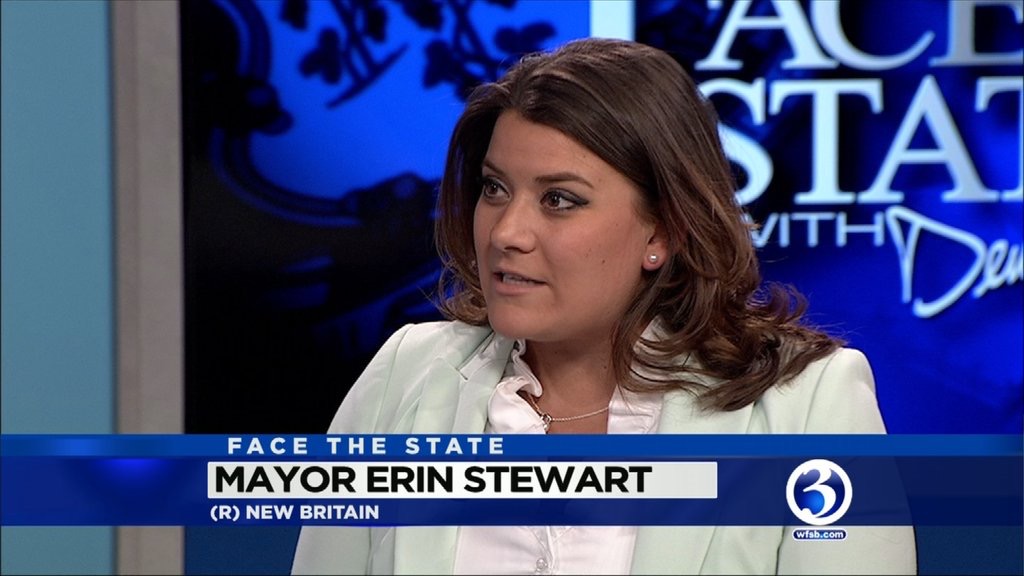Two Notable Phone Calls Help Ease Final Days Of CT Political Consultant
By Ted Glanzer of the Hartford Courant
November 26, 2016
In late September, Mark Riemer gave his first and likely only presidential briefing while heading back from the washroom on the 11th floor of Hartford Hospital. On the line was the 43rd president of the United States.
“He said, ‘This is George W. Bush. The real one,'” Riemer said.
As he walked back to the his son’s room, Mark Riemer apprised Bush on his son, Will Reimer’s, condition, which was deteriorating due to cystic fibrosis, a genetic disease that clogs the lungs and forces patients to struggle to breathe.
When Mark reached the room, Will was hooked up to a respirator, surrounded by nurses.
“I told them they would all have to stop the treatment, unhook Will, and leave the room, because President Bush was on the phone,” Mark says. “When they realized I was serious, they all left.
And the two men talked. “They spoke for five or seven minutes. I just observed. I asked [Will] what they talked about. He said, ‘Honestly, I can’t remember the words. I’m still in shock.’ That was quite a thing.”
Several days later, on Oct. 5, Will Riemer died. He was 32.
That call, and one other, from GOP political strategist Karl Rove, as Riemer lay dying were arranged by friends of the Farmington man, who in his brief career as political consultant and campaign treasurer contributed to the political aspirations of a number of Republican candidates for local and state offices in Connecticut. Along the way he won their admiration for his dedication and devotion to their causes despite health issues that dogged him all his life.
Passion For Politics
As a good-humored testament to Riemer’s political acumen, New Britain Mayor Erin Stewart and a close friend, Farmington town councilor Jon Landry, called Riemer “The Karl Rove of Connecticut.”
In the past 10 years, Riemer, who graduated Farmington High in 2002 and UConn with a degree in political science in 2006, worked on more than a dozen campaigns, including Stewart’s two successful mayoral runs in New Britain in 2013 and 2015; Danbury Mayor Mark Boughton’s gubernatorial bid in 2015; Justin Bernier’s campaign for the 5th District Congressional seat; and Bill Mastrogiovanni’s bid for state representative in 2006, where he met Landry, Mastrogiovanni’s cousin, at a campaign cookout fundraiser.
While Riemer later admitted that he didn’t like Landry when they first met – Landry had recently moved to Connecticut from Washington state and was quite vocal in his plans for Mastrogiovanni’s campaign – the two quickly forged a close personal friendship.
In February 2007, Riemer told Landry of his condition while the two were sitting in a car after a Farmington Republican town committee meeting.
“He says, ‘You know, I have cystic fibrosis and I have a shortened life,'” Landry recalls. “He said, ‘If you plan to be close to me, you’re going to lose me … it means I’m going to die young.’ At this time I never heard of cystic fibrosis … I said, ‘We’ll cross that bridge when we get to it.'”
Riemer later helped with Landry’s campaigns for Farmington zoning board of appeals, in 2007; board of education, 2009; and town council, 2011, 2013 and 2015.
Landry says that in his first-ever campaign – for zoning board of appeals in 2007 – he had a razor-thin $2,000 budget. But Riemer treated the campaign “like I was running for Congress,” Landry says, noting that Riemer was able to take data and identify who the voters in town were, how often they voted and who to target. “Will was the brains behind the whole thing. I was the top vote-getter even though I was way down on the ticket in slot 17.”
In 2009, Landry garnered the most votes – 3,224 – out of the six board of education candidates – the next highest candidate received 250 fewer votes. “The way he used data and technology, he was way ahead of the curve,” Landry says.
Stewart, who met Riemer in 2006 at a Prescott Bush dinner in Stamford, agrees. She attributed her successful campaigns to Riemer’s work as a strategist. Stewart says that in her first campaign, she had three core people working for her, including Riemer.
“Every move I made, I ran by Will,” Stewart says, adding that she had raised just $27,000 in her campaign coffers. “We had been outraised fourfold.”
Riemer took over the technology side of the campaign, creating and frequently updating stewartfornb.com, a site that is still active. He also managed Stewart’s Twitter, Facebook and Instagram accounts.
“The way he managed content, everything was calculated for him,” says Stewart. Because of the tight budget, social media and the website became “the most important piece of my campaign. … He came up with ideas for content I never thought to have.”
There is, for example, the video of Stewart pretending to take phone calls in which she promises various voters to fix potholes and the like. “He would say, ‘You have to do video. Have fun with it. Show your youth,'” Stewart says.
Stewart defeated Democratic incumbent Tim O’Brien by more than 1,000 votes in 2013. She won re-election in 2015.
“I wouldn’t be here if it wasn’t for Will,” Stewart said in an interview while sitting in her office. He refused any money, she said.
State GOP Chairman JR Romano says that he and Riemer often discussed the adoption of technology to reach potential voters.
“A lot was happening and we would joke about bringing people with us on how this worked,” Romano says. “We’d have conversations about it. … The world is much more data driven. People would tell us, ‘That’s not how we do it.’ I remember talking to Will about how frustrating it was coming up as a young operative, like the book ‘Moneyball.'”
A Devastating Disease
Meanwhile, Riemer’s health problems took their toll.
“You and I complain about there not being enough hours in the day, that we are busy, busy, busy,” says Landry. “Every morning when he woke up he put on a contraption known as ‘The Vest,’ that when he hit the power button, shook him for hours. He had a nebulizer that used to make him spit up mucous for two hours. … It was never-ending.”
“To see him work, he was a whirlwind,” says Riemer’s father, Mark Riemer. “I don’t know how he squeezed out the energy to do that and take care of his daily needs. At the end, he would spend eight hours a day at respiratory therapy. The doctor said he was the only person to accomplish that every day, and he did it for four months.”
Not that anyone who wasn’t close to Riemer would know it. He remained in the background politically and did all he could to keep from drawing attention to himself or his condition. He gave law school a try, spending a year at Widener University before withdrawing.
“You never heard him complain,” says Stewart. “He kept pushing. He would say, ‘I’m fine, don’t worry about me.’ He managed on his own. He never wanted people to worry about him. Parts of you crumbled inside to see how he lived.”
Landry said there were other side effects to cystic fibrosis that Riemer contended with. He had a liver transplant while a student at Farmington High School. He had to take enzyme pills any time he ate to help with digestion. He had diabetes and eventually developed skin cancer as a result of his treatments.
Mark Riemer says that after his son had the liver transplant, he created a spreadsheet to keep track of medicines he had to take — which could be as much as one every 15 minutes — and when to check them off. He shared the spreadsheet with fellow transplant recipients, his father said.
‘Breathe Easy Up There’
Riemer was an IT/human resources professional for Harvey & Lewis Optical in West Hartford and campaign treasurer to Chris Forster and Mark Sargent in their unsuccessful bids for state representative in Farmington and Mansfield, respectively — until the end. Though his ability to travel was limited, Riemer arranged to videoconference with the staffs of both campaigns.
Landry came up with the idea for having Rove call Riemer when he went into the hospital for what turned out to be the last time.
Landry reached out to Romano, who worked with state Rep. John Frey to get in touch with Rove. After he spoke with Riemer, Rove contacted Bush, who then telephoned Will.
“Will was a rock star for that day [that he spoke with Bush]; he was the talk of the 11th floor [of Hartford Hospital],” Landry says. “How cool was that?”
Landry, for his part, declined to take any credit for Rove’s call.
“You know who deserves credit? Will deserves the credit, because of the type of person he was,” Landry said.
Several days after that phone call from the former president, Will Riemer died. And while everyone knew that day was coming, it was heartbreaking for those closest to him. Landry and Stewart were among those who spoke at Will’s funeral.
“I miss Will every day,” Landry said in his eulogy. “I miss his wit. His snark. His cynicism, his competitive attitude and his friendship. I miss you Will and I love you. Breathe easy up there, my dear, dear friend and may you rest in peace.”
This story originally appeared in the Hartford Courant.


